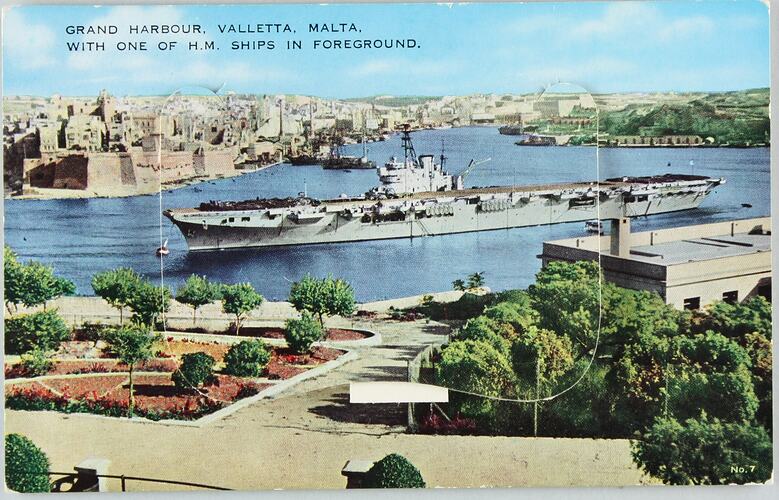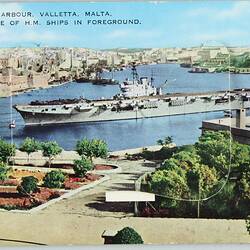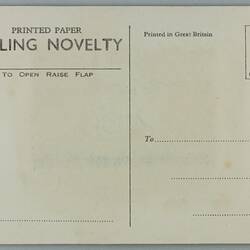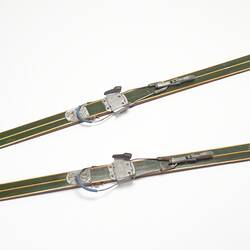Summary
Full colour postcard promoting Malta, received by Dorothea Huber [nee Freitag and later Dunzinger] during her migrant voyage from Austria to Melbourne in 1959. The postcard feature a flap revealing a pull-out set of small black and white images of sites in Malta.
Born in 1929 near Graz, Austria, Dorothea Dunzinger [formerly Huber and nee Freitag] was a proficient recreational skier and part of a volunteer rescue team in Switzerland. She lived and worked primarily as a mill weaver and seamstress in England, Switzerland and Austria before migrating to Australia from Austria on 30 November 1959, arriving on the Cogedar Line ship 'Flaminia' on 31 December. She settled in Melbourne and married fellow Austrian Johann Dunzinger whom she met at Broadmeadows migrant hostel. They had a daughter Caroline and lived in various Melbourne suburbs boarding and renting before building a home in Kalorama. The couple divorced in1978. Dorothea worked hard all her life, owning a boutique clothing shop in Camberwell at one stage but primarily as a textile outworker and factory worker trying to make ends meet. She died in 2001.
Physical Description
Full colour postcard with image of harbour with ship in Valletta, Malta. Centre of postcard has a flap which opens to reveal 10 small fold-out images of Malta, printed on 1 side only. Reverse of postcard is plain with space for postal details and postage stamp
Significance
The Dunzinger Austrian Migrant Collection has evolved to become a rich group of objects which tell a particular story of an Austrian woman's post-war migration experiences, as well as broader contextual narratives relating to the variety of selection and management processes in place in Europe after World War II. These include references to Australian-specific organisations involved in migration management such as the Australian Migration Mission. Items explore the enthusiastic promotional activities of the Australian Government to encourage migration from the UK and Europe in order to populate Australia and build a workforce. Artefacts also relate to a significant Italian migrant ship of the period, the Cogedar Line 'Flotto Lauro'.
There is a also symbolic poignancy about the skis and the small sewing machine Dorothea Dunzinger brought with her from Austria: the skis representing precious mementoes from home and hopes and expectations for the leisure activity they might bring in Australia; the sewing machine a pragmatic object which came to dominate Dorothea's actual settled life of hard work both in the home and as an outworker with no leisure time at all.
More Information
-
Collecting Areas
-
Acquisition Information
Donation from Ms Caroline Dunzinger, 07 Nov 2012
-
Past Owner & User
-
Inscriptions
Front cover caption: 'GRAND HARBOUR, VALLETTA, MALTA,/ WITH ONE OF THE H.M SHIPS IN FOREGROUND' Inside flap: 'MALTA/ Valentine & Sons Ltd., Dundee and London' Reverse side: 'PRINTED PAPER/ MAILING NOVELTY'
-
Classification
-
Category
-
Discipline
-
Type of item
-
Overall Dimensions
140 mm (Width), 89 mm (Height)
-
Keywords
Austrian Immigration, Post War Migration, Shipboard Travel, Souvenirs



